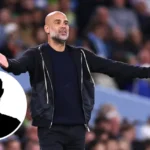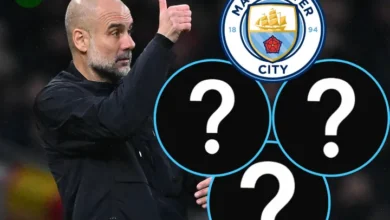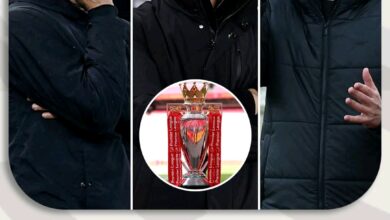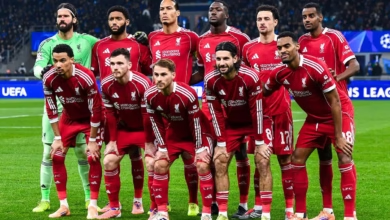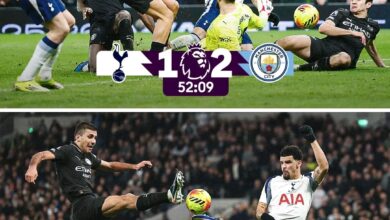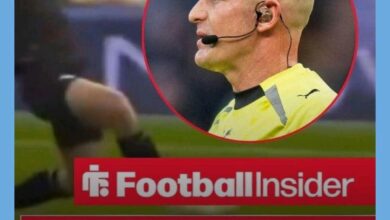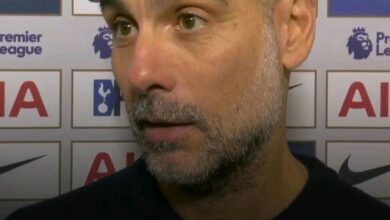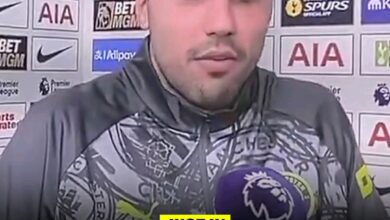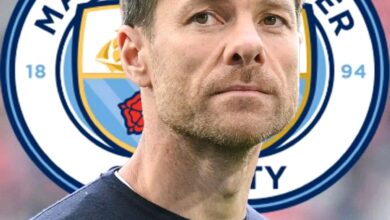Guardiola ‘offers’ Man City star to Barcelona for £34m Deal almost Sealed
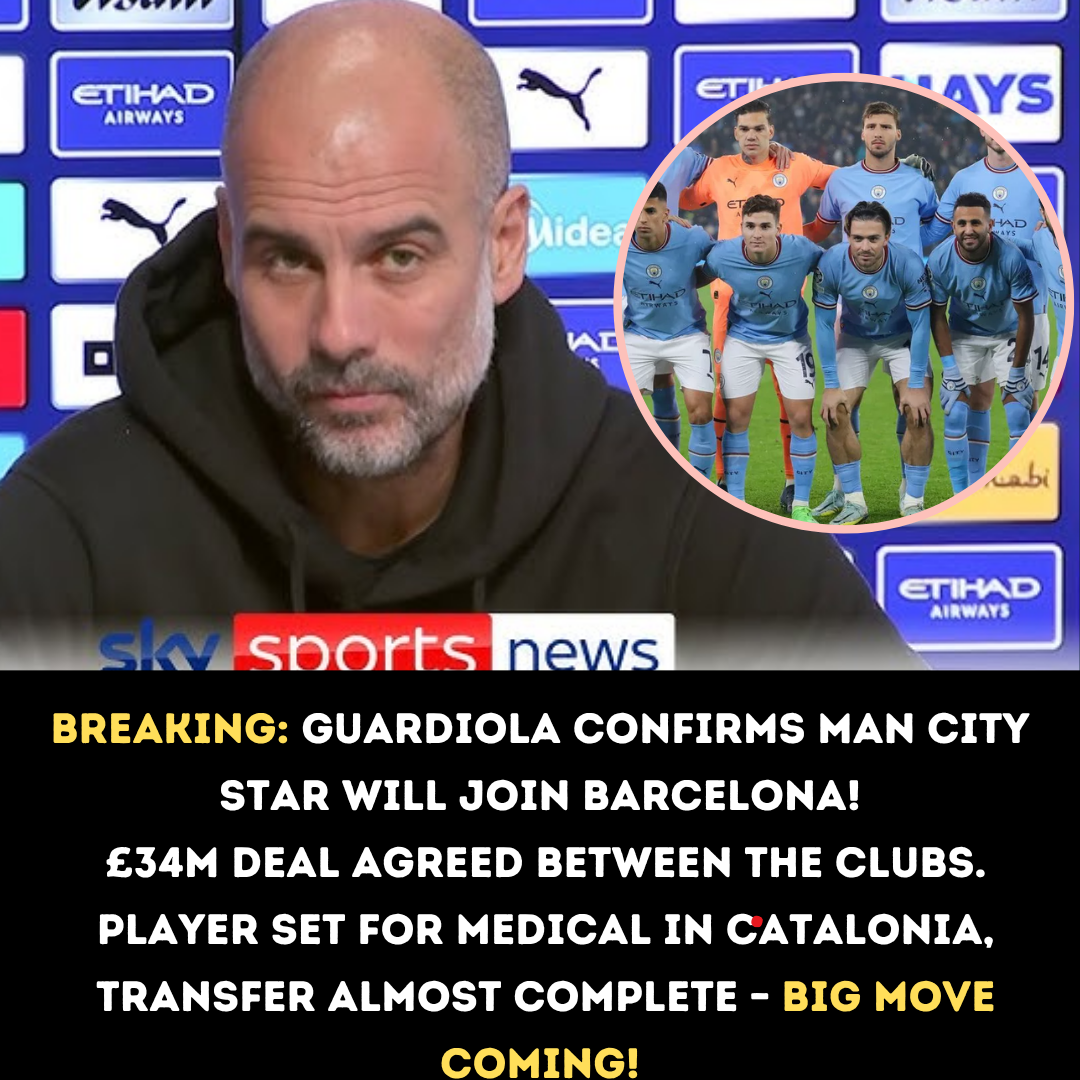
The summer transfer window has brought unexpected developments in the career of Jack Grealish, Manchester City’s once-prized £100 million acquisition from Aston Villa. According to recent reports emerging from Spain, Pep Guardiola has made the surprising decision to offer the English winger to his former club Barcelona for a significantly reduced fee of £34 million, marking a dramatic fall from grace for a player who was once considered one of the Premier League’s most exciting talents.
However, the proposed move to the Catalan giants has been swiftly and decisively rejected by Barcelona’s current manager, Hansi Flick, who reportedly “doesn’t see Grealish as the right fit for his project.” This immediate dismissal of the transfer opportunity highlights the complex challenges facing Grealish as he seeks to revive his career after a disappointing period at the Etihad Stadium.
The Rise and Fall of a £100 Million Investment
When Manchester City broke the British transfer record to sign Jack Grealish from Aston Villa in the summer of 2021, expectations were astronomical. The then 26-year-old attacking midfielder had been the crown jewel of Villa’s squad, single-handedly keeping them in the Premier League with his exceptional dribbling ability, creativity, and knack for drawing fouls in dangerous areas.
Grealish’s arrival at City was seen as the final piece in Guardiola’s tactical puzzle – a player who could provide the unpredictability and individual brilliance that sometimes eluded City’s methodical approach. His ability to beat players one-on-one, combined with his work rate and tactical intelligence, seemed perfectly suited to Guardiola’s demanding system.
However, the reality has been starkly different from these initial expectations. Over his three seasons at Manchester City, Grealish has struggled to establish himself as a consistent starter, often finding himself on the periphery of the squad during crucial matches. The £100 million price tag has become increasingly burdensome as his performances have failed to justify the enormous investment.
A Season of Struggles and Diminished Influence
The 2024-25 season has been particularly challenging for both Grealish and Manchester City as a whole. By the club’s extraordinarily high standards, it was a disappointing campaign that saw them finish third in the Premier League – a position that would be celebrated by most clubs but represents underachievement for a team accustomed to domestic dominance.
The season’s nadir came with their defeat to Crystal Palace in the FA Cup final, a result that left Guardiola and the City hierarchy questioning various aspects of their squad composition and tactical approach. For Grealish, the campaign was characterized by limited opportunities and a clear indication that his manager’s faith in him had significantly diminished.
The statistics paint a stark picture of Grealish’s reduced role: just 16 starts across all competitions throughout the entire season. For a player of his caliber and financial investment, such limited involvement represents a clear signal that his time at the Etihad Stadium may be drawing to a close. The situation was further emphasized when City chose to exclude him from their Club World Cup squad, despite the tournament’s importance and prestige.
City’s Summer Reconstruction
Manchester City’s approach to the summer transfer window has been characteristically ambitious, with the club already securing the signatures of several high-profile players. The acquisitions of Marcus Bettinelli, Rayan Ait Nouri, Tijjani Reijnders, and Rayan Cherki demonstrate Guardiola’s commitment to refreshing his squad and addressing the shortcomings that emerged during the previous campaign.
These signings, coupled with reports of City’s pursuit of a Norwegian star for a potential record fee, suggest that the club is prepared to make significant changes to their squad composition. In this context, Grealish’s potential departure appears to be part of a broader strategic shift rather than an isolated decision.
The fact that Guardiola has actively offered Grealish to Barcelona indicates that the Spanish manager has made a definitive judgment about the player’s future role – or lack thereof – in his plans. This represents a significant departure from the optimism and investment that characterized Grealish’s initial arrival at the club.
The Barcelona Rejection: Flick’s Clear Vision
Hansi Flick’s immediate rejection of the opportunity to sign Grealish provides fascinating insight into both managers’ tactical philosophies and their assessment of the player’s current abilities. Flick, who has taken over at Barcelona with his own clear vision for the club’s playing style and squad composition, evidently does not see Grealish as fitting into his system.
This rejection is particularly significant given Barcelona’s well-documented financial constraints and their typical interest in acquiring talented players at below-market rates. The fact that even a reduced asking price of £34 million – representing a massive loss on City’s original investment – was not enough to tempt Barcelona suggests serious questions about Grealish’s current market value and perceived ability.
Flick’s decision also reflects the evolving nature of modern football tactics and the specific demands placed on wide players in contemporary systems. While Grealish’s individual skills remain evident, his ability to contribute to high-intensity pressing, defensive work rate, and tactical flexibility may not align with what Flick demands from his players.
The Everton Connection: A Potential Lifeline
While Barcelona’s rejection represents a setback, other opportunities remain available for Grealish. Everton has emerged as the most concrete potential destination, with transfer expert Fabrizio Romano assigning a “35 percent chance” to the move materializing. However, the financial complexities involved in any potential deal highlight the challenges facing all parties.
Romano’s assessment reveals the intricate financial negotiations that would be required: “Grealish is likely to leave this summer, with Everton as a possible destination, though negotiations are not advanced. His high £300,000 weekly wage makes a loan deal likely, with City possibly covering part of it.”
The mention of Grealish’s £300,000 weekly wage illuminates one of the primary obstacles to his departure. This salary, reflective of his status as a marquee signing, now represents a significant barrier to finding a suitable destination. Few clubs can afford such wages, particularly for a player whose recent performances have not justified such remuneration.
The Loan Option: A Practical Solution
Given the financial realities involved, a loan arrangement appears to be the most viable option for facilitating Grealish’s departure from Manchester City. Such an arrangement would allow City to reduce their wage bill while potentially preserving some of Grealish’s transfer value for future negotiations.
Former Everton chairman Keith Wyness has provided valuable insight into the practical challenges facing any potential deal. Speaking on Football Insider’s Inside Track podcast, Wyness explained: “I just don’t see how that big financial chasm is going to be filled. A loan would be the only potential option I could really see, where City would carry on paying part of his wages and Everton contributing.”
Wyness’s analysis highlights the fundamental economics of modern football transfers, where wages often represent a more significant obstacle than transfer fees. His suggestion that City would need to continue paying a portion of Grealish’s wages reflects the reality that few clubs can afford to take on such financial commitments entirely.
The Age Factor and Long-term Planning
An additional consideration in Grealish’s potential move is his age and how it fits into receiving clubs’ long-term strategies. At 29, Grealish is at a stage of his career where he should be approaching his peak years, yet questions remain about his ability to adapt and rediscover his best form.
Wyness touched on this aspect, noting: “I think Everton have got bigger rebuilds to do and I don’t know if they’re to build a team around a 29-year-old like Jack at the moment, so that’s the issue there.” This observation reflects the broader strategic considerations that clubs must make when evaluating potential signings.
However, Wyness also expressed personal admiration for Grealish’s qualities: “I’m very fond of Jack as a person and I just love watching him play. All the experts, when I was at Villa, when we had him, they’d always tell me, watch the way Jack accepts the ball and he is a yard quicker than everybody else, just on the way he controls the ball and accepts it.”
Technical Analysis: What Grealish Still Offers
Despite his struggles at Manchester City, Grealish retains several qualities that could make him valuable to the right club in the right system. His ball-carrying ability remains exceptional, with few players in world football capable of progressing the ball through tight spaces as effectively as he can.
His technique in receiving the ball under pressure, as highlighted by Wyness, represents a rare skill that can be transformative in the right tactical context. The ability to “accept the ball and be a yard quicker than everybody else” through superior first touch and spatial awareness is not something that diminishes significantly with age.
Furthermore, Grealish’s experience in high-pressure situations, Champions League football, and international competitions provides intangible value that could benefit a club looking to elevate their ambitions. His understanding of different tactical systems and ability to adapt to various roles across the front line offers versatility that many clubs would find attractive.
The Wider Transfer Market Context
Grealish’s situation exists within the broader context of a challenging transfer market, where financial constraints and Financial Fair Play regulations have made big-money moves increasingly difficult to execute. The fact that other clubs like West Ham and Newcastle have also been mentioned as potential destinations suggests that there is still interest in his services, albeit at a level commensurate with his current circumstances rather than his peak reputation.
Romano’s mention of these clubs “complicating the transfer” indicates that multiple options may be available, potentially giving Grealish and his representatives some negotiating power in determining his next destination. However, the financial realities mean that all interested parties must be creative in structuring any potential deal.
Guardiola’s Tactical Evolution
The decision to offer Grealish to Barcelona also provides insight into how Guardiola’s tactical thinking has evolved since the player’s arrival. The Spanish manager’s systems have become increasingly demanding in terms of defensive contribution from wide players, with emphasis on high-intensity pressing and quick transitions.
Grealish’s style, while technically excellent, may not align perfectly with these evolving demands. His preference for holding onto the ball and drawing fouls, while effective in certain contexts, may conflict with the quick ball circulation that Guardiola increasingly favors in his tactical setup.
Financial Implications for Manchester City
From Manchester City’s perspective, any departure of Grealish would represent a significant financial loss, given the disparity between his purchase price and current valuation. However, the removal of his substantial wages from the payroll could provide financial flexibility for other transfer activities.
The club’s apparent willingness to accept such a significant loss suggests that they prioritize squad harmony and tactical fit over purely financial considerations. This approach reflects the club’s strong financial position and their ability to absorb such losses in pursuit of optimal squad composition.
Conclusion: An Uncertain Future
Jack Grealish’s current situation represents one of the more intriguing storylines of the summer transfer window. From being England’s most expensive player to potentially struggling to find a suitable club willing to meet his wage demands, his journey illustrates the unpredictable nature of modern football careers.
While Barcelona’s rejection represents a setback, the continued interest from Premier League clubs suggests that opportunities remain available. The key will be finding a club and system where his undoubted technical abilities can be maximized while addressing the tactical and financial challenges that have complicated his time at Manchester City.
The resolution of Grealish’s situation will likely require compromises from all parties involved – City may need to accept further financial losses, potential destination clubs will need to be creative with their financial structuring, and Grealish himself may need to adjust his expectations regarding his next career move.
Whatever the outcome, his situation serves as a reminder that even the most expensive transfers do not guarantee success, and that finding the right fit between player, club, and tactical system remains one of football’s most complex challenges. As the transfer window progresses, Grealish’s next move will be watched with considerable interest by football fans and industry observers alike, as it will provide valuable insights into the current dynamics of the modern transfer market.





